Handwriting practice Normal Math Worksheets for 5-Year-Olds
5 filtered results
-
From - To
Boost your 5-year-old's math skills and handwriting with our specially designed worksheets at Kids Academy. Our Normal Math Worksheets for young learners seamlessly blend engaging math problems with handwriting practice, supporting dual skill development. These activities help children master numbers, shapes, and basic addition while refining their writing abilities. Tailored for early learners, our fun, interactive exercises make learning an adventure, building a solid educational foundation. Each worksheet encourages independent practice, ensuring kids stay enthusiastic about their progress. Visit Kids Academy for printable resources that transform learning math into a delightful, hands-on experience.
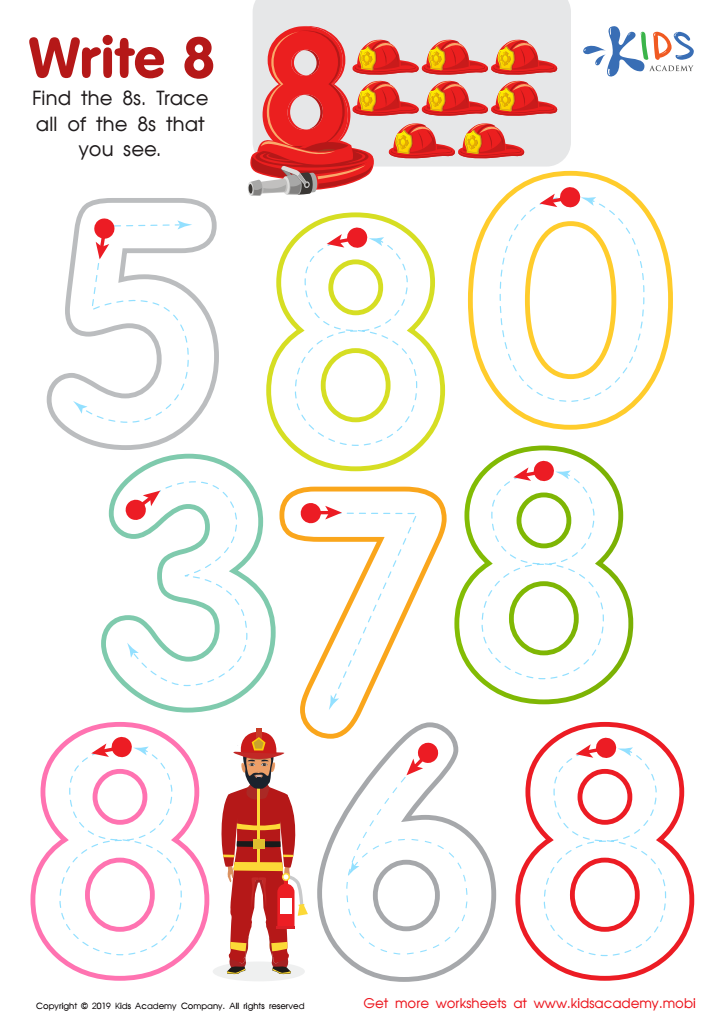

Write 8 Worksheet
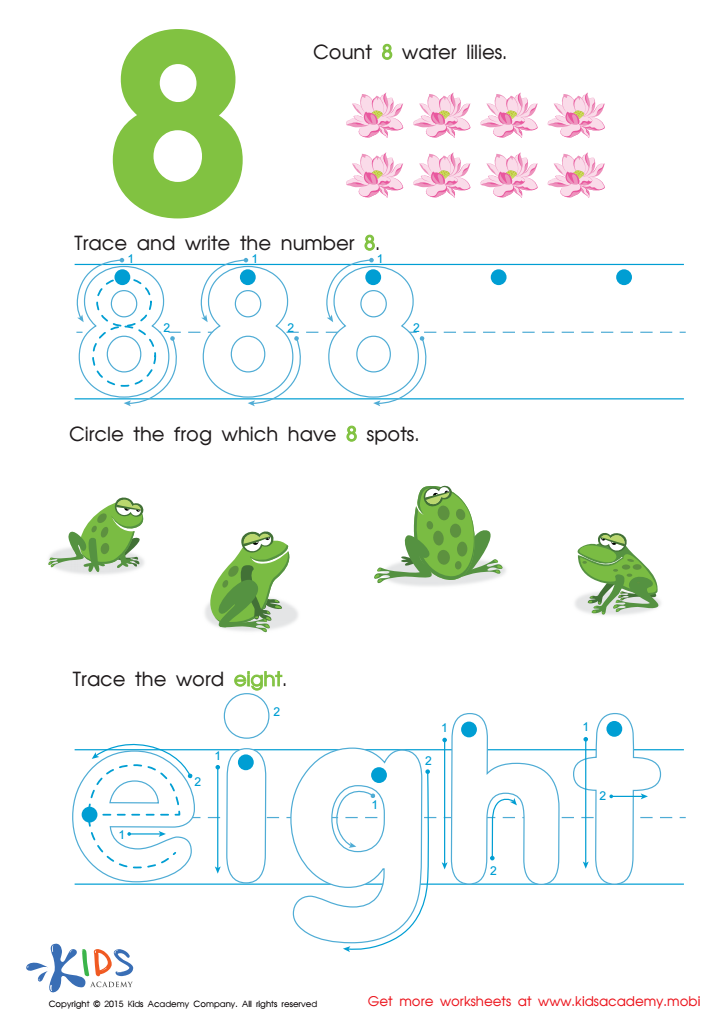

Learn Number 8 Easily Worksheet
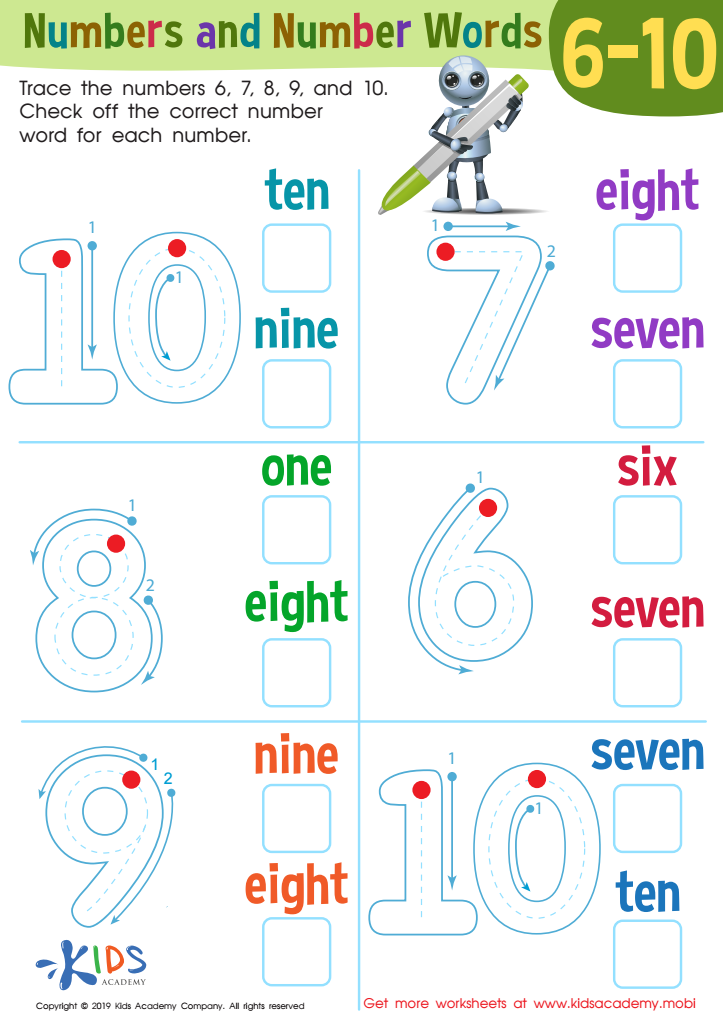

Numbers and Number Words 6–1 Worksheet
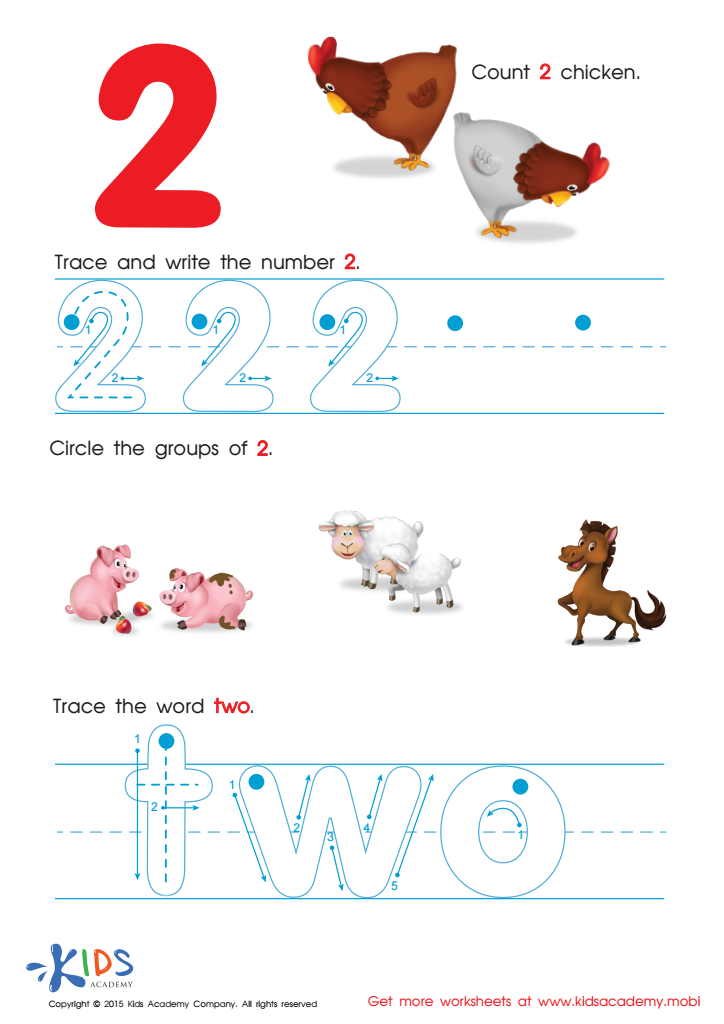

Learn to Write the Number 2 Worksheet
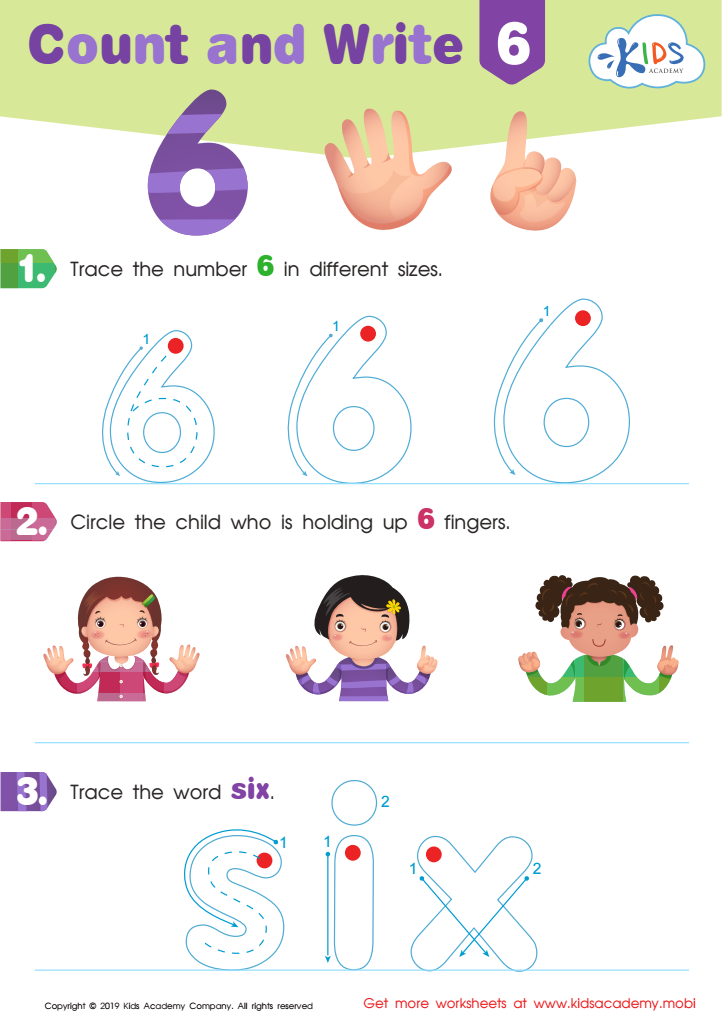

Count and Write 6 Worksheet
Handwriting practice and normal math engagement are fundamental for the holistic development of 5-year-olds, fostering essential cognitive and motor skills. Handwriting practice helps children develop fine motor skills, muscle memory, and hand-eye coordination. Mastering letter formation is critical for legibility and fluency in writing, laying a foundation for effective communication and academic success. It also helps improve concentration and attention to detail, essential for broader learning processes.
Engaging in normal math activities builds foundational numeracy skills that are crucial for future math proficiency. Math concepts such as counting, sorting, and basic addition and subtraction foster logical thinking and problem-solving abilities. Early familiarity with numbers enhances pattern recognition, a skill vital for advanced mathematical concepts. Moreover, math activities often involve hands-on learning, which can improve fine motor skills and spatial awareness.
Both handwriting practice and basic math establish routines that promote discipline and structured thinking. They boost children’s confidence as they master new tasks, setting a positive precedent for lifelong learning. Parents and teachers who support these activities provide children with the tools needed for academic readiness and empower them to tackle more complex challenges enthusiastically and competently in the future.
 Assign to My Students
Assign to My Students



















